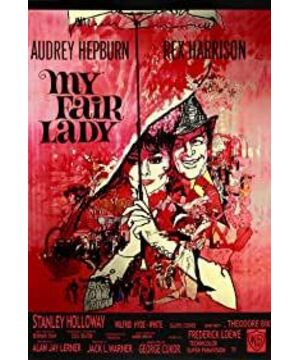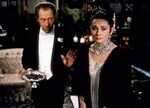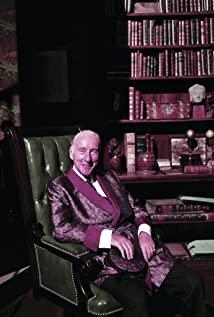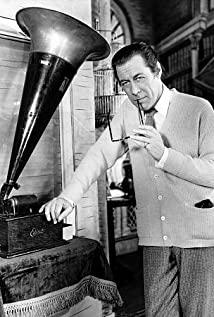In Greek mythology, Pygmalion, the king of Cyprus, did not like mortal women and liked carving. He devoted all his passion and energy to sculpting an ivory maiden, and in the end, he fell in love with his work. Eros was moved by his love and gave life to the statue. Next is the happy ending of the two lovers.
My Fair Lady comes from this story. To be precise, it was adapted from Bernard Shaw's book The Flower Girl. The book was meant to be satirical, but the final adaptation of the film seemed to be a romantic love story, without the irony of the book itself.
At the beginning of the film, the professor repeatedly trained the flower girl's English pronunciation. One of the little jokes is the sentence "the rain in spain falls mainly on the plain" read by the flower girl.
James Paul Gee believes that language can be acquired, but Discourse cannot. He defines Discourse as a combination of saying(writing)-doing-being-valuing-believing. It can be understood that to truly acquire a Discourse (integrate into an environment/class/group), you can do more than just acquire the grammar or even the language in it. According to Gee, to become a noble one must truly learn how to act and speak like a noble, and to be able to identify others as nobles. It sounds simple, but Gee emphasizes that Discourse cannot be learned through direct and obvious instruction (overt instruction). It can only be done with the kind of interaction of Discourse people.
And the professor in the film tries to make her learn the Discourse of the aristocracy by teaching the flower girl the language used by the aristocratic ladies. What we can see in the first half of the film is that there is no interaction with the nobles. Even if the accent and language of the bottom of the flower girl are changed, the flower girl still makes a fool of herself at the horse racing banquet.
Only after this immersive experience did the flower girl really know how to behave like a noblewoman. Considering the length and dramatic effect of the film, the film allowed Eliza to complete the transformation of the ugly duckling after this one. But in real life, when the Primary Discourse like a flower girl has penetrated into the bone marrow, it is very difficult to acquire a Secondary Discourse, become a fair lady, and enter the upper class.
By the end, the flower girl could fluently pronounce the sentence "the rain in spain falls mainly on the plain". But has she really transformed herself into the upper class? I have no idea. Which Eliza did the professor fall in love with? Do you love Eliza, or love the process of him trying his best to cultivate a flower girl, or love to be an upper-class, elegant fair lady? I do not know either. Is the story of Pygmalion really that romantic? Pygmalion, still love yourself.
View more about My Fair Lady reviews











